Key Skills to Look for When Hiring a Certified Welding Inspector
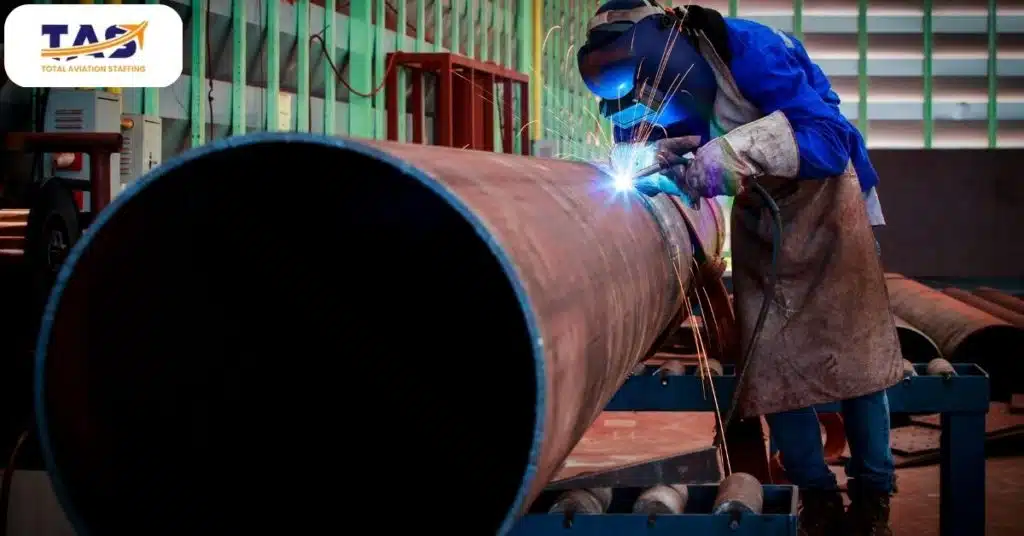
The success of any welding project largely depends on the skills and expertise of the welding inspector. When hiring a certified welding inspector, it is important to look beyond their credentials and certifications.
One must also consider their key skills and competencies to ensure that one can perform their duties efficiently and effectively. Here are some of the key skills that you should look for when hiring a certified welding inspector to ensure that your welding project is a success.
1. Knowledge of Welding Processes
When hiring a Certified Welding Inspector (CWI), it is essential to consider their knowledge of welding processes. This knowledge is crucial as it ensures that the CWI can effectively inspect welding work performed and ensure compliance with company procedures and customer requirements.
A CWI with a deep understanding of welding processes can quickly identify any anomalies in welding work and take necessary corrective measures. This knowledge can also help to ensure that the right welding equipment is used and the work is completed within the appropriate parameters. Additionally, an experienced CWI with knowledge of welding processes can provide valuable guidance to manufacturers on welding quality requirements, helping to prevent future welding issues.
When hiring a CWI, it is important to ensure they have a thorough understanding of welding processes to ensure the quality and integrity of welding work.
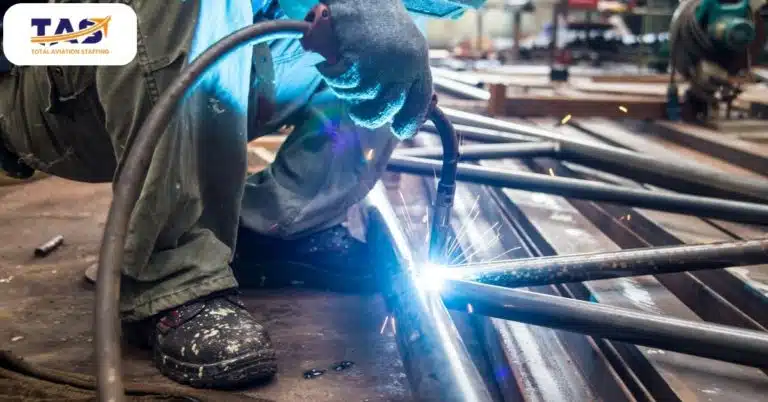
2. Familiarity with Welding Codes and Standards
Welding is an essential process in aviation manufacturing, and it must meet strict quality standards to ensure the safety of aircraft and passengers. Welding codes and standards provide guidelines for welding quality and safety, and a CWI must have a thorough understanding of these requirements to perform their duties effectively.
Here are some reasons why familiarity with welding codes and standards is crucial when hiring a CWI in aviation:
Ensures compliance with industry regulations: The aviation industry has strict regulations regarding welding quality, and adherence to welding codes and standards are necessary to ensure compliance with these regulations.
Guarantees weld quality: Welding codes and standards provide guidelines for weld quality, including factors such as joint design, material selection, and welding techniques. A CWI’s familiarity with these guidelines ensures that the weld quality meets industry standards.
Reduces the risk of weld failures: Welding codes and standards include guidelines for preventing weld defects and failures. A CWI’s familiarity with these guidelines helps them identify potential issues and take corrective actions before they cause problems.
Facilitates communication: Familiarity with welding codes and standards helps a CWI communicate effectively with other stakeholders, such as engineers, designers, and quality assurance personnel.
The importance of hiring a Certified Welding Inspector (CWI) with a strong knowledge of welding codes and standards cannot be overstated in the aviation industry. By prioritizing these qualifications in your hiring process, you can have peace of mind knowing that your aircraft is being built with the utmost care and attention to detail.
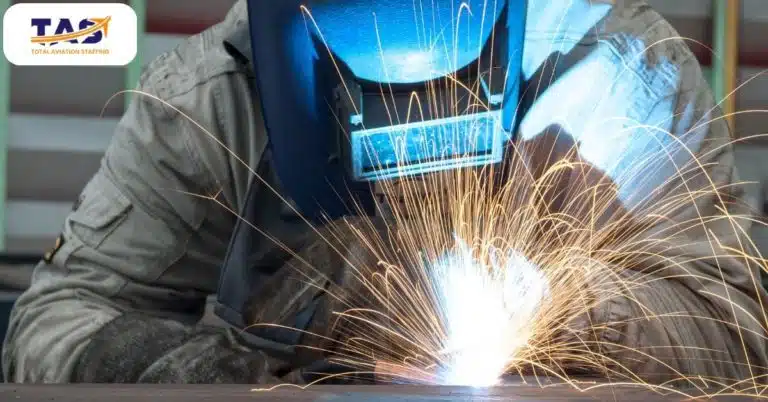
3. Attention to Detail
Attention to detail is crucial when it comes to hiring a Certified Welding Inspector in aviation. The job involves inspecting 100% of the structural welds performed and ensuring compliance with the company’s procedures and customer requirements. A small error in welding can lead to catastrophic consequences, especially in the aviation industry.
Therefore, an inspector must have a keen eye for detail to spot even the tiniest imperfection or anomaly in the welding process. Attention to detail also means that the inspector can effectively communicate the findings and requirements to the welding team, ensuring that any issues are addressed promptly.
In aviation, the safety of passengers and crew depends on the quality of welding, and a Certified Welding Inspector with excellent attention to detail can help ensure that all welding work meets the highest standards of safety and quality.
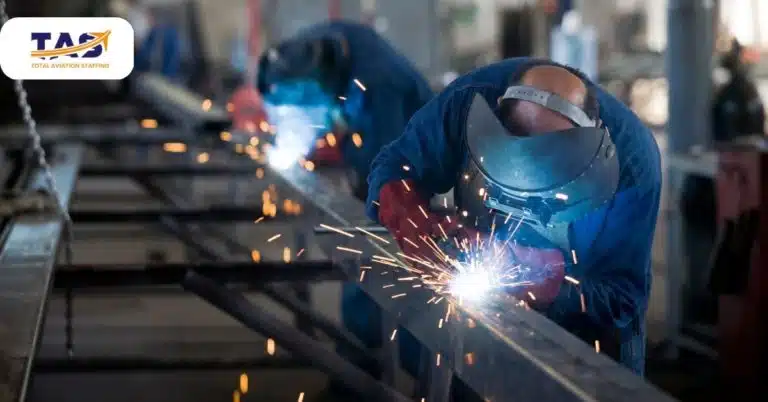
4. Communication Skills
Effective communication skills are essential for a Certified Welding Inspector (CWI) in aviation. Communication is a two-way process that involves not only expressing oneself clearly but also listening actively. A CWI with good communication skills can explain welding processes and procedures to team members, interpret welding codes and standards to engineers and other stakeholders, and provide clear and concise reports to management.
Effective communication skills also help in resolving conflicts that may arise during welding operations and ensuring that all parties involved understand and adhere to safety protocols. Additionally, a CWI with good communication skills can act as a liaison between different departments, ensuring that there is a smooth flow of information throughout the aviation project.
Overall, excellent communication skills are crucial for a CWI to carry out their duties effectively and ensure that welding operations are completed safely, efficiently, and to the satisfaction of all stakeholders involved.
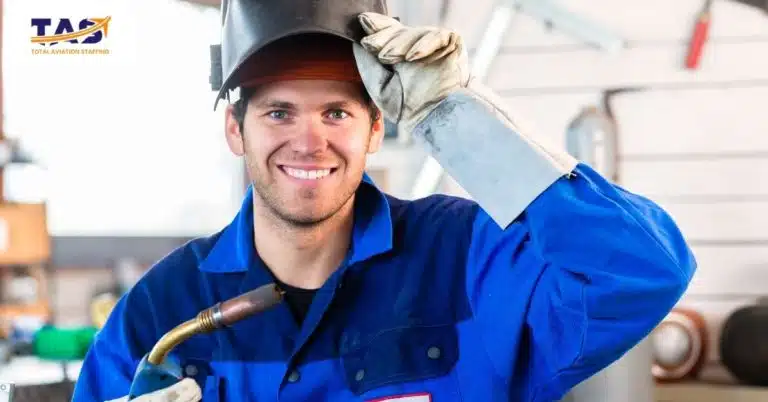
5. Technical Expertise
Technical expertise is a crucial aspect to consider when hiring a Certified Welding Inspector in aviation. This is because the aviation industry requires high standards of safety and reliability, and welding plays a significant role in ensuring the integrity of aircraft structures. A welding inspector with technical expertise in welding processes and materials can identify defects, deviations from standards, and potential hazards that may compromise the aircraft’s safety.
Here are some reasons why technical expertise is crucial for a welding inspector:
Ability to interpret technical drawings and specifications: Technical expertise enables a welding inspector to read and understand complex technical drawings, specifications, and blueprints.
Understanding of welding processes and techniques: A welding inspector with technical expertise can identify the best welding process and technique suitable for a specific application, depending on the material, thickness, and structural requirements.
Knowledge of welding materials: Technical expertise enables a welding inspector to recognize different types of metals and alloys and their welding characteristics.
Experience with non-destructive testing: Technical expertise enables a welding inspector to interpret non-destructive testing results accurately and identify welding defects that may not be visible to the naked eye.
Technical expertise is not just a nice-to-have but a must-have quality when hiring a Certified Welding Inspector in aviation. It’s the difference between a welding inspector who knows what they’re doing and one who doesn’t. So, don’t take any chances when it comes to the safety and reliability of your aircraft.
Hire a welding inspector with the technical know-how to identify potential hazards, interpret complex technical drawings, and deliver top-quality welding inspections. Remember, when it comes to aviation, it’s better to be safe than sorry – and a technically proficient welding inspector can help you do just that!
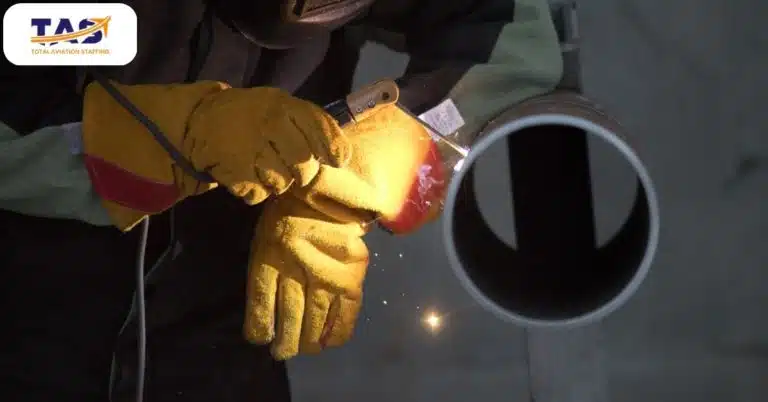
6. Problem-solving Skills
Problem-solving skills are crucial for any Certified Welding Inspector in the aviation industry. They need to be able to analyze complex issues, identify the root cause, and develop effective solutions. This requires an ability to think critically and logically, as well as excellent attention to detail.
Welding inspections can uncover unexpected problems, and a Certified Welding Inspector with strong problem-solving skills can help ensure that these issues are quickly identified and resolved before they become more significant problems. Additionally, problem-solving skills can help inspectors determine the most appropriate welding techniques, equipment, and materials for a particular job, which can ultimately lead to safer and more efficient welding processes.
A Certified Welding Inspector with strong problem-solving skills is an asset to any aviation company and can help ensure that welding projects are completed to the highest possible standards.
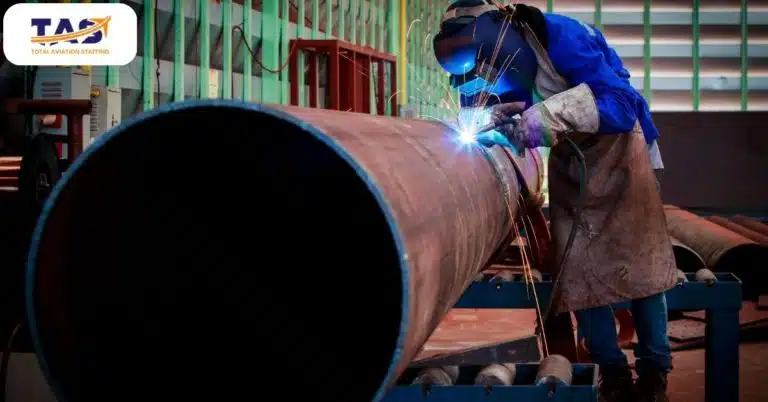
Wrapping Up
So, there you have it, the key skills to look for when hiring a Certified Welding Inspector. Remember, it’s not just about technical expertise or attention to detail, but also problem-solving skills, communication skills, familiarity with welding codes and standards, and a passion for the craft. A great welding inspector is a valuable asset to any aviation team, so choose wisely and make sure they’re up to the task!
Ready to find the best Certified Welding Inspector for your aviation team? Let Total Aviation Staffing help! Our experienced aerospace and aviation placement specialists will work with you to find the perfect candidate who possesses all the necessary key skills. Don’t settle for anything less than the best. Contact us today to learn more about our staffing solutions and how we can help take your team to the next level!
